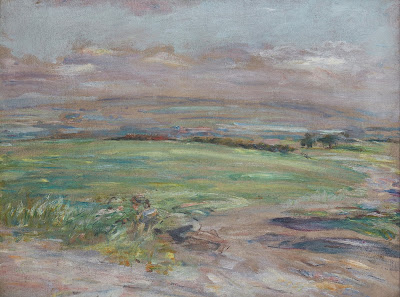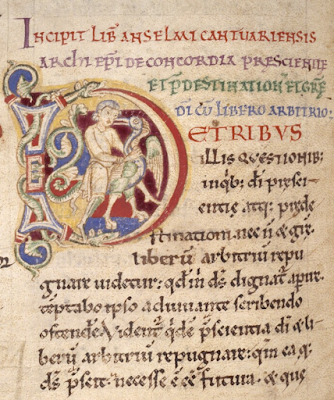Weekly update 4
The conception
of a being than which a greater cannot be thought is a powerful one: it generates
an impressive list of divine attributes, unifies them conceptually, and even
reveals that such a being cannot fail to exist. But it doesn’t tell us
everything there is to know about God. Readers familiar with standard Christian
doctrine may have noticed two sizeable omissions thus far: the doctrine that
God is the Creator and the doctrine of the Trinity. Anselm does not try to
argue that it is greater to be a creator than not to be a creator, nor does he
try to argue that it is greater to be a Trinity than not to be a Trinity.
There was at least some room in the
tradition for an argument that it is greater to be a creator than not. One
strand of Platonism taught that goodness tends to diffuse or share itself (bonum
diffusivum sui). On that view it would be natural for an unsurpassably
great being to communicate its goodness to other things: being a creator, or at
least a source of other good things, would be an essential characteristic of a
wholly good being. Anselm does not explicitly address that way of thinking, but
it’s clear enough why it wouldn’t appeal to him. That than which a greater
cannot be thought is wholly and unsurpassably good in himself, utterly
self-sufficient, needing nothing outside himself in order to express or
exemplify his goodness. A God who can’t be God without creating is no God at
all.
And suppose for a moment—just for the sake of argument—that it is necessary for a perfectly good being to “diffuse” his goodness to other things. Is this diffusion a result of that being’s choice, or does it just happen? Neither answer is tenable. If it just happens, creatures flow forth from God (the traditional expression is “emanate”) independently of God’s own intention, which undermines divine ultimacy and omnipotence. If God must choose to create, there’s something outside of God that constrains or compels his choice, which undermines divine aseity. So Anselm’s view is that God is equally great—equally God—whether he creates or not. We know he is a Creator because we know that things other than God exist, and given divine ultimacy and aseity, that means that God brought them into being by a free and uncompelled choice.




Comments
Post a Comment